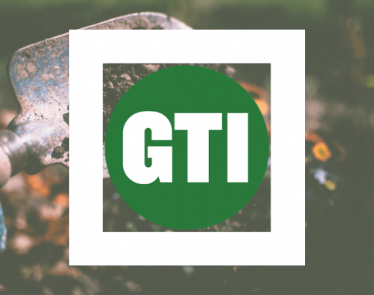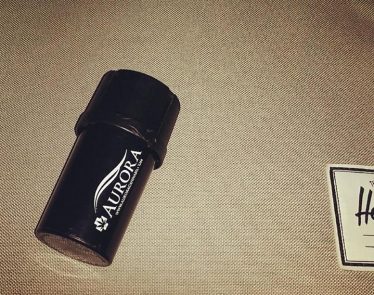
The Alcohol and Gaming Commission of Ontario (AGCO) revealed the 42 cannabis retail license winners on Tuesday, generating excitement among licensed Canadian pot stocks hoping to capitalize on the province's expanding retail market.
Applicants were required to meet pre-qualification requirements, including a letter from a bank or financial institute to confirm access to $250,000 CAD in funding as well as proof they have secured a suitable retail space. Those selected now have until August 28 to pay licensing fees and provide another letter from a bank for an additional $500,000 CAD.
“The AGCO will only license applicants and authorize stores that meet all legal and regulatory requirements,” the commission said in a statement, noting that they aim to have new stores open in October 2019.
According to AGCO, the remaining 4,822 applicants will be put on a waitlist for each region based on the order they were drawn. There will also be eight additional licenses located on First Nations land, although the process for these dispensaries will be different.
Pot Stocks Eye Newly Awarded Retail Shops
The Ontario cannabis lottery winners are a mix of sole proprietors and numbered companies, some of which may be large entities. Smaller cannabis businesses awarded a dispensary license will likely be teaming up with industry leaders that have ample experience in the field. The Ontario cannabis lottery winners will also likely look to cannabis consulting firms to help them set up shop.
>> HEXO Stock Feeling the Burden of Cannabis Industry Struggles
Interestingly, licensed producers were not eligible to enter the lottery in a move to prevent them from dominating the market. However, the AGCO did not block applicants from entering into agreements with other parties for support in operating their private retail store.
The previous lottery in January, which brought in nearly 17,000 applications, saw numerous deals between lottery winners and public pot stocks like High Tide (CSE:HITI) (OTCQB:HITIF), Canopy Growth (TSX:WEED) (NYSE:CGC), Fire & Flower Holdings (TSX:FAF) (OTCPK:FFLWF), Inner Spirit Holdings Ltd. (CSE:ISH) (OTC:INSHF), and Choom Holdings (CSE:CHOO) (OTCQB:CHOOF).
In February, Fire & Flower secured deals with two cannabis lottery winners in Kingston and Ottawa to provide consulting and licensing services. The company was also granted the option to purchase each other winners' interest in the retail locations following the expiry of the lottery process.
At the same time, Inner Spirit Holdings entered into an agreement with a lottery winner in Kingston to open a Spiritleaf brand dispensary. Emerging recreational cannabis retailer Choom Holdings also gained a stake in the Ontario market in February by signing an LOI with one of the 25 cannabis retail lottery winners.
Then in March, High Tide was selected by three lottery winners to assist in establishing and operating their retail cannabis stores under its Canna Cabana retail brand. Canopy Growth's Tokyo Smoke brand was also chosen by a cannabis lottery winner in Toronto, while another London, Ontario-based shop will carry the company's Tweed brand name through an agreement with Alimentation Couche-Tard Inc. (TSX:ATD.A) (OTCPK:ANCUF) and an unnamed lottery winner.
While it is still too early to say which pot stocks will be pairing up with the new Ontario cannabis lottery winners, industry experts expect licensed producers will be scrambling to ink deals with them. Many of the lottery winners aren't equipped with the industry experience needed to meet AGCO requirements, so it makes sense for them to look to LPs for help.
>> Aleafia Stock Fails to Sustain the Rally: Should You Worry?
Will Other Provinces Follow Suit?
Pot stocks with a presence in other Canadian provinces are no doubt hoping the opening of these private dispensaries in Ontario will have a domino effect. At present, British Columbia has 59 private dispensaries with no cap on how many it will allow, while the Alberta government set its limit at 200 privately owned cannabis retail stores. Saskatchewan initially issued 51 retail licenses and may offer more in the future, while Manitoba has licensed 24 cannabis retail stores across the province to date.
In Quebec, legal recreational cannabis is only sold at 17 Société Québecoise du Cannabis (SQDC) locations. The Quebec Cannabis Industry Association (QCIA) also announced last month that it is banning the sale of cannabis edibles when they become legal this fall.
Legal cannabis sales in Ontario more than doubled in April, increasing to $19.7 million from $7.6 million the previous month, as cannabis stores awarded licenses in the first lottery round began opening. Prior to April 1, Ontario was the only province that only offered online cannabis sales.
It would make sense for BC to incentivize private cannabis companies to open up shops in the province to increase its cannabis sales, enhance the customer experience, and, eventually, wipe out the black market. In April, BC's legal cannabis sales only reached a disappointing $2.5 million.
It will be interesting to see which pot stocks will gain a stake in Ontario's expanding legal cannabis retail market and whether or not more private retail dispensaries will open up across the country.
>> Read More Cultivation & Retail News
Featured Image: Depositphotos © belchonock













